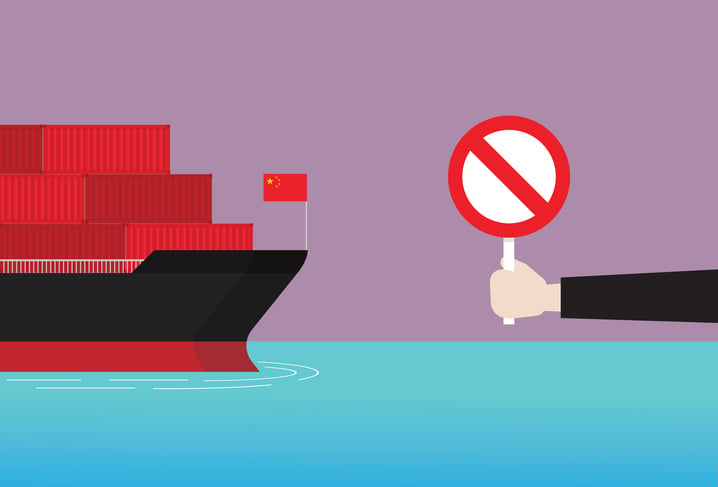Bolstering American Manufacturing Through Tariffs

China announced Sunday that it was launching an anti-dumping probe into a type of thermoplastic — polyoxymethylene copolymer — that is widely used for electronics and cars and is imported from the U.S., the European Union, Taiwan and Japan. This follows last week’s move by President Joe Biden to hike tariffs on certain Chinese goods, including semiconductors and electric vehicles (EVs).
The tariffs announcement occurs amid a heated presidential campaign season between Biden and former president Donald Trump, whose administration instituted strong tariffs on goods from China in 2018. It also occurs at a time when relations between the U.S. and China have been strained.
At the crux of each set of tariffs is protecting American workers and American factories.
A report in The New York Times detailed how the influx of inexpensive Chinese imports in the early 2000s drove some American factories out of business and caused many to lose jobs. “Stung by shuttered factories, cratered industries and prolonged wage stagnation,” author Jim Tankersley wrote, “Americans in 2016 elected a president who vowed to hit back at China on trade. Four years later, they elected another one.”
Calling them “separate but overlapping efforts,” Tankersley explains how both presidents have attempted to revive American manufacturing “by making it more expensive to buy Chinese goods.”
Whether impacted by trade wars or tariffs, geopolitics or economics, logistics or infrastructure woes, supply chains continue to be hit by disruption, a constant reminder for supply management organizations that they must be agile, resilient and have a plan.
The Latest China Tariffs
About US$18 billion of imports from China is impacted by the increase in tariffs under Section 301 of the Trade Act of 1974.
“Following an in-depth review by the United States Trade Representative, President Biden is taking action to protect American workers and American companies from China’s unfair trade practices,” a White House statement notes. “To encourage China to eliminate its unfair trade practices regarding technology transfer, intellectual property, and innovation, the President is directing increases in tariffs across strategic sectors such as steel and aluminum, semiconductors, electric vehicles, batteries, critical minerals, solar cells, ship-to-shore cranes, and medical products.”
According to the statement, the tariff rate on Chinese EVs will increase to 100 percent this year. It had been 25 percent. “This action advances President Biden’s vision of ensuring the future of the auto industry will be made in America by American workers,” the statement said.
The tariff on solar cells is slated to include to 50 percent from 25 percent, while that of steel and aluminum are set to rise to 25 percent.
“Steel is a vital sector for the American economy, and American companies are leading the future of clean steel,” according to the White House statement. “Recently, the Biden-Harris Administration announced $6 billion for 33 clean manufacturing projects including for steel and aluminum, including the first new primary aluminum smelter in four decades, made possible by the Bipartisan Infrastructure Law and the Inflation Reduction Act.” Such investments, the statement said, will enable the U.S. to become one of the first countries “to convert clean hydrogen into clean steel, bolstering the U.S. steel industry’s competitiveness as the world’s cleanest major steel producer.”
Another Trade War?
For supply managers, the tariffs spark such questions as how they will impact American manufacturing and factories, availability of supply and raw materials, sourcing and future investment.
And other questions come to mind:
Why has Biden kept the Trump-era tariffs in place? “The first thing to understand is that in an era of global superpower competition, which is what we’re in, why would any administration — it doesn’t matter whether it’s red or blue — give up bargaining chips that the previous administration put in place?” Institute for Supply Management® (ISM®) CEO Thomas W. Derry says. “They’re not going to do it; it’d be foolish.”
He continues, “I do think the Biden administration is being expedient, and there's an element of industrial policy here. We’re targeting EVs, which the country is trying to be a preeminent leader in. And the presidential election does factor into the calculation.”
The Trump administration brought such protectionism tools back into play, Derry says: “It changed how countries see what’s available to them, and we’ve seen it play out worldwide.”
Will there be another trade war? “All countries realize that there will be some face-saving,” Derry says. “There may be some tit-for-tat tariff responses, but I also think China will do it in a very measured way that allows them to say to their constituents that they’re not taking this lying down, but at the same time signaling to their counterparts that they’re not going to let this spin out of control.”
In addition to the anti-dumping probe, the BBC reported that according to state media, China on Monday sanctioned three American defense firms over their sales of weapons to Taiwan.
Derry cites ISM World 2024 keynote speaker Ian Bremmer, founder and president of the Baltimore-based Eurasia Group, telling Conference attendees that the relationship between the U.S. and China “has never been better managed.”
“I don't think this will spiral into another trade war — because both sides are too invested in maintaining the status quo,” Derry says.


